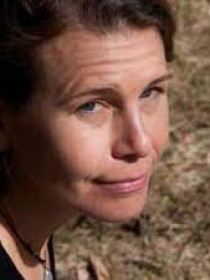Connect with Adrienne
About Adrienne
Russell studies communication technologies, digital-era publics, and pressing social problems. Her most recent book, The Mediated Climate (Columbia University Press 2023), explores the overlapping climate and information crises and examines the battle to influence the public being waged by journalists, activists, corporate interests, and Big Tech.
Contributions
In the News
Publications
Explores the places where the climate and information crises meet, and examines how journalism, activism, corporations, and Big Tech compete to influence the public. Russell argues that the inadequate response to climate change is intertwined with the profound challenges facing the communications environment.
Documents the burgeoning field of climate journalism, including an emerging interplay between climate journalism and other actors in the broader information environment.
Discussion of “dysfunctional hybridity” and the urgency that kind of hybridity brings to the need to update our thinking about media, power and society.
Brings together leading scholars of media and public life to grapple with how media research can make sense of the massive changes rocking politics and the media world.
Study of news flashpoints, bursts of news attention around social issues in which various forces vie to influence public discourse, blurring traditional boundaries between journalists, publics, activists, and various other forms of strategic communication.
Details the work of Environmental Data & Governance Initiative, a group of coders, climate scientists, scholars, journalists, and activists organized to resist the Trump administration’s attacks on environmental protections and offers an expanded understanding of the misinformation ecosystem.
Highlights ways media activists adept at using and creating new communication tools are taking up the work of journalists, expanding the field in significant ways, and shaping on a new level traditional news stories and genres.
Explores the transformations tied to the proliferation of the web and mobile technologies since the early 1990s
